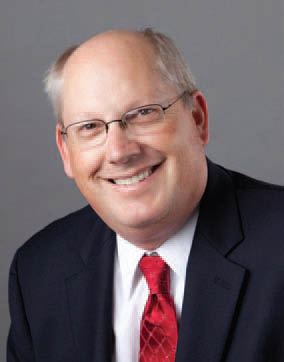What is the relevance of liberal arts at Cornell today?
Amid the clamor of current opinion about higher education in America, several themes seem to be consistent: affordability of a college education, education as job training, the monetary value of a baccalaureate degree in future wages, and questions about a decline of quality in education. Where are the liberal arts in all of this discussion? What is their role in the 21st century, and at Cornell College?

What 21st century students and their parents must realize is that liberal education prepares an individual for the changing complexities of modern life and for careers that have not yet even been conceived. The careers of the future, and especially the leaders of the future in all fields, are best served through liberal education. Thus, liberal education is truly vocational—negating the popular notion that an undergraduate humanities degree insures a life of poverty and unemployment! America’s fine private liberal arts colleges, including Cornell College, are the best places for students to engage in liberal education that will serve them well throughout their lives.
Some of the leading edge work in defining and shaping liberal education in the 21st century has been done through the Liberal Education and America’s Promise (LEAP) project of the American Association of Colleges and Universities. LEAP is a decade-long project started by the Association of American Colleges and Universities in 2005 bringing together prominent educators, foundation leaders, and leaders from business and industry in an effort to recalibrate college learning to the needs of a new global century. Their first set of findings and initiatives was published in 2007 by the association in a document titled College Learning for the New Global Century.
LEAP defines liberal education as an approach to learning that empowers individuals and prepares them to deal with complexity, diversity, and change and provides students with broad knowledge of the wider world as well as in-depth study in a specific area of interest.
This definition is valuable because it avoids attempting to define the exact content and rather views liberal education as an empowering approach to learning. In this new century higher education has certainly moved beyond the notion that there is a “body of knowledge” that all students must acquire in a liberal arts education. We all know there is an ever-expanding body of knowledge, most of which is available at our fingertips using cell phones. Certainly our students need to acquire a good measure of knowledge in their collegiate studies, however they must also develop the intellectual skills to use that knowledge in meaningful ways.
The LEAP definition also seeks to bridge the dichotomy between a practical or vocational education and a liberal education. This dichotomy has been in place at least since Classical Antiquity, when Greeks contrasted between the education of a free man and the training of a slave. The term “liberal” originated from the Latin “liber” meaning “free” and thus the term “liberal arts” originated as the description of the education of a free Greek citizen.
This contrast between liberal education and practical, or vocational, education is alive and well today in the vast array of options in higher education. As we all know, these two goals are mixed up in various ways at a variety of institutions—the public universities, community colleges, large private universities, small liberal arts colleges, and the ever-increasing number of for-profit institutions of higher education. Most have some mixture of liberal and vocational education. Among the for-profit colleges and universities, there is a strong focus on job training in accelerated formats. Some of the for-profits are even providing more liberal education in their programs and competing directly with traditional colleges and universities.
At Cornell, we expect our graduates to be able to acquire, analyze, interpret, and communicate knowledge; possess skills including, but not limited to, writing, reading comprehension, critical thinking, quantitative reasoning, information literacy, and oral communication; and understand the methods and practices of the natural sciences, social sciences, arts, and humanities. The college’s course catalog also lays out the following objectives for students: possess intercultural knowledge and recognize global perspectives; integrate and transfer knowledge and skills from one setting to another; and be cognizant of their responsibility for individual, civic, and social choices.
Our educational goals mirror those of the LEAP initiative quite closely. How does Cornell College accomplish these best practice goals of liberal education?
First, we are committed to a rich curriculum rooted in the liberal arts. Our courses are substantive and rigorous and students are challenged to think critically and deeply. Through One Course At A Time, Cornell students are fully immersed in learning facilitated by highly qualified faculty members committed to effective teaching.
Classroom learning at Cornell is further enhanced through a variety of academic enhancement programs. Cornell’s distinctive Centers for Extraordinary Opportunity—The Berry Center for Economics, Business, and Public Policy; Dimensions: The Center for the Science and Culture of Healthcare; The Center for Law and Society; The Career Engagement Center; and The Center for the Literary Arts (opening in fall 2012)— provide students with outstanding experiential opportunities such as internships, guest lecturers, contacts with professionals in a variety of fields, and preparation for graduate and professional schools. Student learning is extended beyond the campus through a rich variety of off-campus and international programs including the McLennan Center in Chicago also opening in fall 2012.
Finally, Cornell’s rich array of opportunities within the residential life program and the myriad clubs and student organizations provide students wonderful means to expand their learning and gain valued leadership skills.
Cornell students learn in the classroom, on campus, and around the world. From its roots in Classical Antiquity, liberal education is alive and well at Cornell College providing learning that will serve our graduates well in the 21st century.



